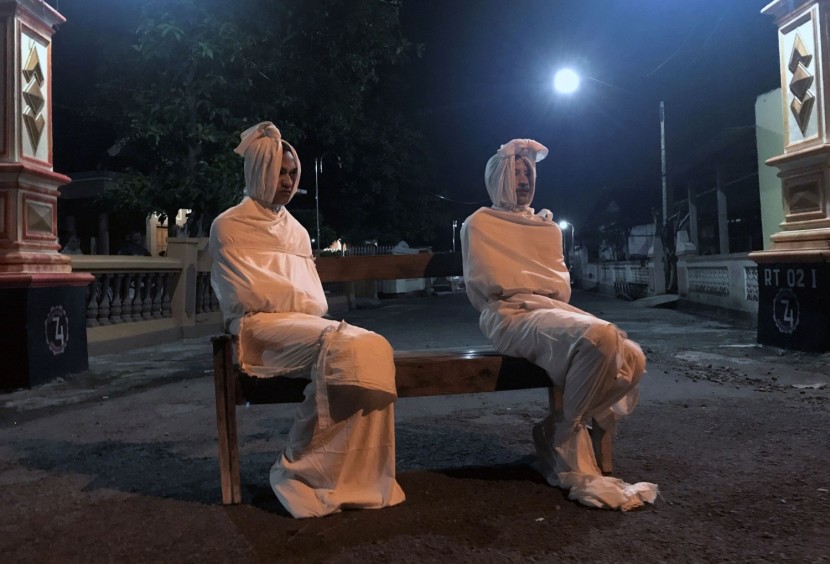
Aiming to spook people into staying home amidst the coronavirus outbreak, the streets of a neighborhood in Java, Indonesia "haunted by ghosts" wrapped in white sheets at night.
Based on a local folk tale, the ghost known as "pocong" or "pochong" is famous for haunting graveyards in Indonesia. The said ghosts are covered in white sheets which are the remnants of a traditional burial shroud that is tied in at the head and feet.
According to the volunteers, they used the ghost costumes while holding "surprise patrols" in Kepuh village in Sukoharjo in order to keep people from leaving their homes in efforts of helping mitigate the virus. However, their plan initially backfired when they became viral in social media because instead of staying at home, more people went out of their houses just to see the ghosts.
In an interview with Reuters, Anjar Pancaningtyas, head of the youth volunteer group who started the initiative in cooperation with local authorities, said that they aimed to introduce a different approach in making people stay home and that they wanted to create a deterrent effect due to the fact that "pocong" is supposed to be scary.
He also added that since they set up the roadblocks guarded by "pocong," the villagers have become more open and conducive to the idea of staying home.
The "pocong" ghosts, however, are not particularly agile to be able to chase some citizens home since their feet are bound together in shrouds and have to bunny-hop in order to move.
COVID-19 in Indonesia
According to state-run Antara News Agency , on Monday, Indonesian President Joko Widodo has declared that the COVID-19 pandemic has become a national disaster through a letter. They also reported that the letter indicated a COVID-19 task force that would work in helping alleviate the impact of the deadly disease by working along with the ministries, regional administrations, and government agencies.
On March 31, Widodo already declared a national public emergency and had Indonesia's Health ministry work together with the regional leaders in imposing social distancing measures, banning foreign nationals from transiting through and entering the country and have Indonesians who have traveled abroad enroll themselves in self-isolation for two weeks.
Widodo, however, did not implement a full national lockdown.
At the moment, the country has recorded a total of 4,557 cases including 399 deaths due to coronavirus according to data from John Hopkins Univerisity. Indonesia currently holds the highest death rate in any East Asian country aside from China.
According to Priyadi, head of the Kepuh village, local residents still lack awareness on the dangers brought by coronavirus and are also ill-informed about the ways to curb its spread. He also added that people want to keep living their lives normally which makes it difficult to implement the stay-at-home orders. Thus, they needed to innovate and find other ways to keep people at home.
The number of cases in Indonesia continues to rise and experts fear that the risk of the disease spreading increases as Ramadan approaches. University of Indonesia researchers have already predicted an estimate of more than 140,000 deaths and 1.5 million cases in the country by the end of May if tougher measures in stopping the spread of the virus are not implemented.
© 2025 HNGN, All rights reserved. Do not reproduce without permission.








